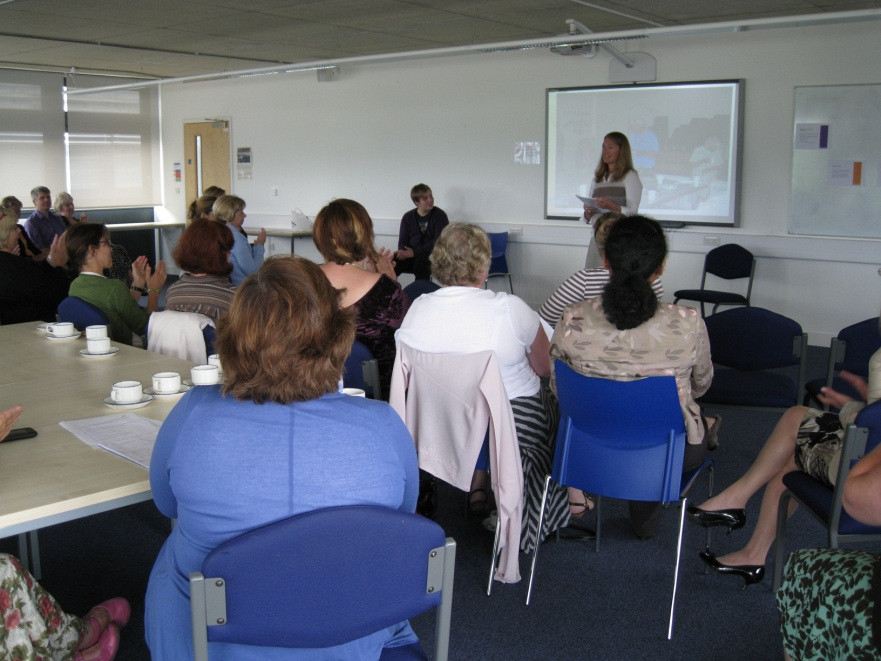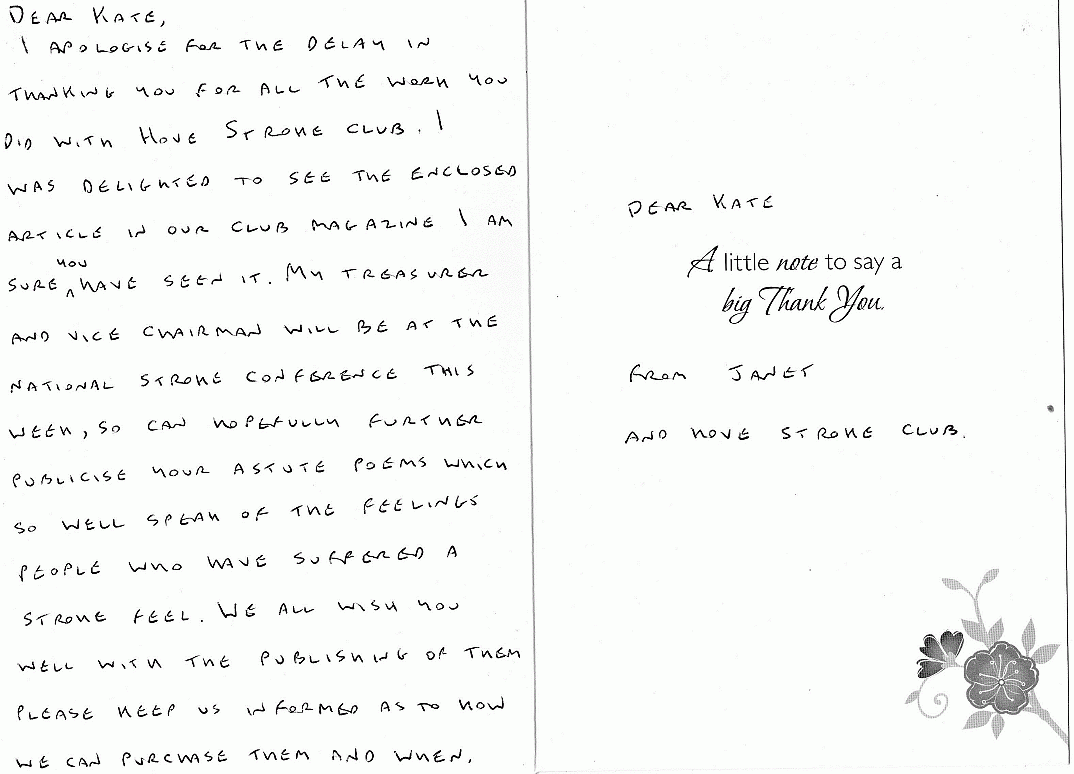Help
Community21 has selected some case study communities and projects to share across the network to inspire and inform others. Should we be featuring yours? If so get in touch.


This poetry-writing project explored the feelings evoked through having/recovering from a stroke. It was one of the On Our Doorstep projects in 2011 within the Community University Partnership Programme (CUPP) at the University of Brighton.
Working with St Leonards based performance poet Kate Tym who instigated the idea, three lecturers and five nursing students volunteered to visit Stroke Clubs in Hove, Woodingdean and Hastings. Stroke clubs are a community based initiative and rely on volunteers for their existence. The three clubs were keen to be partners in the project and share what they do as they are an important part of continuing care for stroke survivors.
The university volunteers attended on several occasions, engaging in conversation with the club organisers and members. They listened to stroke survivors and their carers talking about their stroke in non-medical terms, in a way that was sociable and promoted their social and community inclusion. It encouraged the use of speech and interaction as well as stimulated memory and language skills. Testimonials were gathered and during this process volunteers took notes and listened carefully to the experiences outlined by the stroke survivors and carers. A particular phrase or thought was often pertinent or poignant which the lecturers and students highlighted in the notes.
Kate later created a collection of poems informed by the accounts. The poems were then ‘fed back’ to the Stroke Clubs through a performance which the volunteering students and lecturers could also attend. This was seen as a way of verifying the narratives and ensuring they represented the experience of stroke survival. Once authenticated, the poems were published in a pamphlet together with a CD recording of Kate reading them.
This community poetry project, led by Dr Alec Grant at the School of Health Sciences, is underpinned by the theory of narrative inquiry and has led to a number of transformative developments. The project has helped shape positive rehabilitative stories. It has enabled stroke survivors additional insight and a voice about their own condition as reflected back to them in a different way. Health science students have learnt the value of arts-based approaches to healthcare as the project has been used in classroom teaching to a wide variety of students. All of the student volunteers commented that they had discovered things they never would have found out in their role as a nursing student in practice, because the questions they were asking were very different questions. In addition, the project has also been published in a practice development journal and presented at conferences with national and international audiences. All of this further illustrates the power of narrative to reveal lived experiences and how this new knowledge, co-produced with stroke survivors within a partnership project, can influence both practice and the education of learners.
Project Partners Kate Tym (Performance Poet) Ann Jenkins, Four Deans Stroke Club Mrs D Judge, Hastings Stroke Club (SARAH) Janet Seymour, Friends of Hove and Portslade Stroke Club Dr Alec Grant , Debbie Hatfield and Dr Kay Aranda School of Health Sciences, University of Brighton